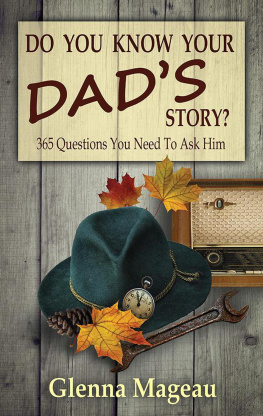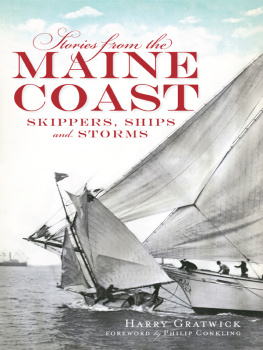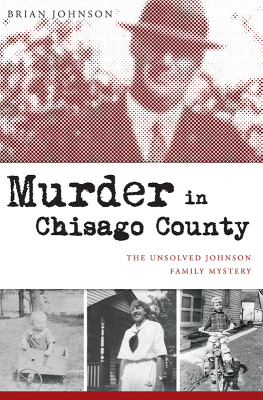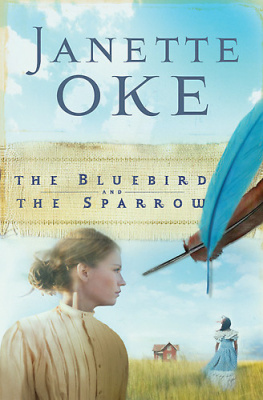Old Maine Woman

Stories from The Coast to The County
by Glenna Johnson Smith
Also from Islandport Press
Where Cool Waters Flow by Randy Spencer
Contentment Cove and Young by Miriam Colwell
Stealing History by William D. Andrews
Windswept, Mary Peters, and Silas Crockett by Mary Ellen Chase
My Life in the Maine Woods by Annette Jackson
Shoutin into the Fog by Thomas Hanna
Nine Mile Bridge by Helen Hamlin
In Maine by John N. Cole
The Cows Are Out! by Trudy Chambers Price
Hauling by Hand by Dean Lawrence Lunt
down the road a piece: A Storytellers Guide to Maine by John McDonald
Live Free and Eat Pie: A Storytellers Guide to New Hampshire by Rebecca Rule
Not Too Awful Bad: A Storytellers Guide to Vermont by Leon Thompson
A Moose and a Lobster Walk into a Bar by John McDonald
At One: In a Place Called Maine by Lynn Plourde and Leslie Mansmann
The Little Fisherman by Margaret Wise Brown and Dahlov Ipcar
The Cat at Night by Dahlov Ipcar
My Wonderful Christmas Tree by Dahlov Ipcar
These and other Maine books are available at: www.islandportpress.com
Old Maine Woman

Stories from The Coast to The County
by Glenna Johnson Smith

ISLANDPORT PRESS YARMOUTH
ISLANDPORT PRESS
P.O. Box 10
Yarmouth, Maine 04096
www.islandportpress.com
Copyright 2010 by Glenna Johnson Smith
First Islandport Press edition published October 2010.
All Rights Reserved.
ISBN: 978-1-934031-84-1
Library of Congress Card Number: 2010937793
Book jacket design by Karen F. Hoots / Hoots Design
Book designed by Michelle A. Lunt / Islandport Press
Publisher Dean L. Lunt
Cover image of Glenna courtesy of Lorraine Wilcox
All other photos courtesy of Glenna Johnson Smith
To my three sons Steven, Byron, and Melbourne Smith.
My boysmy heroes.
Acknowledgments
M Y GRATITUDE to Kathryn Olmstead for publishing my pieces in Echoes magazine for more than twenty years. Her excellent editing has helped me to improve, and her encouragement has kept me writing. If she had not organized my essays and stories and submitted them to Islandport Press, this book would never have happened.
A thank-you to Mary-Ann McHugh, assistant editor at Echoes , for her honest appraisals and her friendship.
Thanks to Gordon Hammond, whose drawings enhanced many of my Echoes pieces.
I am grateful to Dean Lunt, Amy Canfield, and others at Islandport Press for putting up with my slowness and my indecision, and for making my impossible dream come true.
Table of Contents
Foreword
T HE WRITING in these essays and short fiction pieces is lyrical and steady, humorous and yet pensive, nostalgic but always optimistic. That could be a description that perfectly fits the author as well.
The word elder is used in many societies as a term of respect for the older members of a group or clan. With the wisdom of the years, they are the ones, after all, best prepared to counsel younger members, to guide and educate them. This would also be the best word to describe Glenna Smith except that, well, shes so darn young. When I first met Glenna, she was a few years past her seventieth birthday and driving about in a little red sports car, windows down and wind in her hair. Once, she drove me from Presque Isle to Fort Kent in that same car. As I watched her drive, I remember thinking, I hope there are little red sports cars in heaven. Another time, we sat up into the very late hours of a special night reciting the poetry we both loved. Shes an elder, all right, theres no doubt about that. But shes the youngest elder Ive ever known.
Glenna has touched so many young people by the example she has set for them. She has taught us all how to face each day with humor, courage, and the sure knowledge that life is the greatest gift of all. In the essays that follow, we long for the Model T that Glenna would like to keep in her backyard as a pet. In summer Id fill the backseat with pots of geraniums, she writes. By remembering her youth in these pages, she brings back to life percale dresses that cost ninety-eight cents, the importance of hanging on to a perfectly good button, rumble seats, and an old-world politeness we could use more of today.
Glenna writes that shes not up to modern notions such as computers, e-mail, and cell phones because she has a 1920-model Old Maine Woman: Stories from The Coast to The County brain. Well, that might be true, but lets consider that statement. It was in 1920 that the League of Women Voters was founded. It was the year of the first transatlantic two-way radio broadcast, an event that probably rivaled the cell phone in its day. Womens suffrage was guaranteed when the 19th Amendment to the Constitution was passed. Babe Ruth was sold to the New York Yankees and the Curse of the Bambino was loosed on the Red Sox. The first commercial radio station made its debut broadcast, a happening that would match the first satellite dish marching into town today. And out in Hollywood an actor named Douglas Fairbanks married the lovely Mary Pickford. This was the world Glenna Smith was born into, and this is the history she brings with her into the current millennium. Her memories begin with a childhood spent in Down East Maine, with a view of the ocean, instead of those open and windy potato fields of Aroostook County that she grew to love and claim as home.
She is more modern than she will ever realize, and the reason is that she is ageless. She is akin to lichen, which can adjust to any surface, any climate, any idea. Ive lost count of the young people who have told me that Glenna Smith is their mentor, their role model, their champion. You cannot counsel the young unless you hear their voices and listen closely to their words. To do that, you dont need the old wall telephone that would be the first Glenna used as a child; nor do you need the latest cell phone, what she refers to as a tiny spaceship with its eerie blue lights. You simply need the human heart, open to new ideas, patient and loving. Glenna has that in spades.
People often ask, How did we live before cell phones and digital cameras and a million television stations? In this book, and in how she lives her life as example, Glenna Smith, our young elder, shows us how.
Cathie Pelletier
Allagash, Maine
October 2010
Introduction
I AM A PRODUCT of rural Mainetwenty-one years in Hancock County, the other sixty-nine in Aroostook. Although no two of us are alike, Ive observed attitudes that seem typical of many country people, past and present.
Most of my relatives and neighbors in both counties have valued hard work. One of the greatest compliments given at funerals: She/he was a hard worker. The last words spoken to me by my great-grandmother Addie Lassell, then in her nineties, were, Every day work hard at something worthwhile, Glenna. Thats the important thing. She didnt have to tell me that she enjoyed every dayI could see that.
Most country people take responsibility for their families. They treat their farm animals well, and neighbors look out for each other. Rural people may not talk about love and loyalty, but they know their value. Most of us try to do right, but when we mess up we can laugh at ourselves and start over. Because I am one of the rural everyday people, I like to write about us.
Next page










